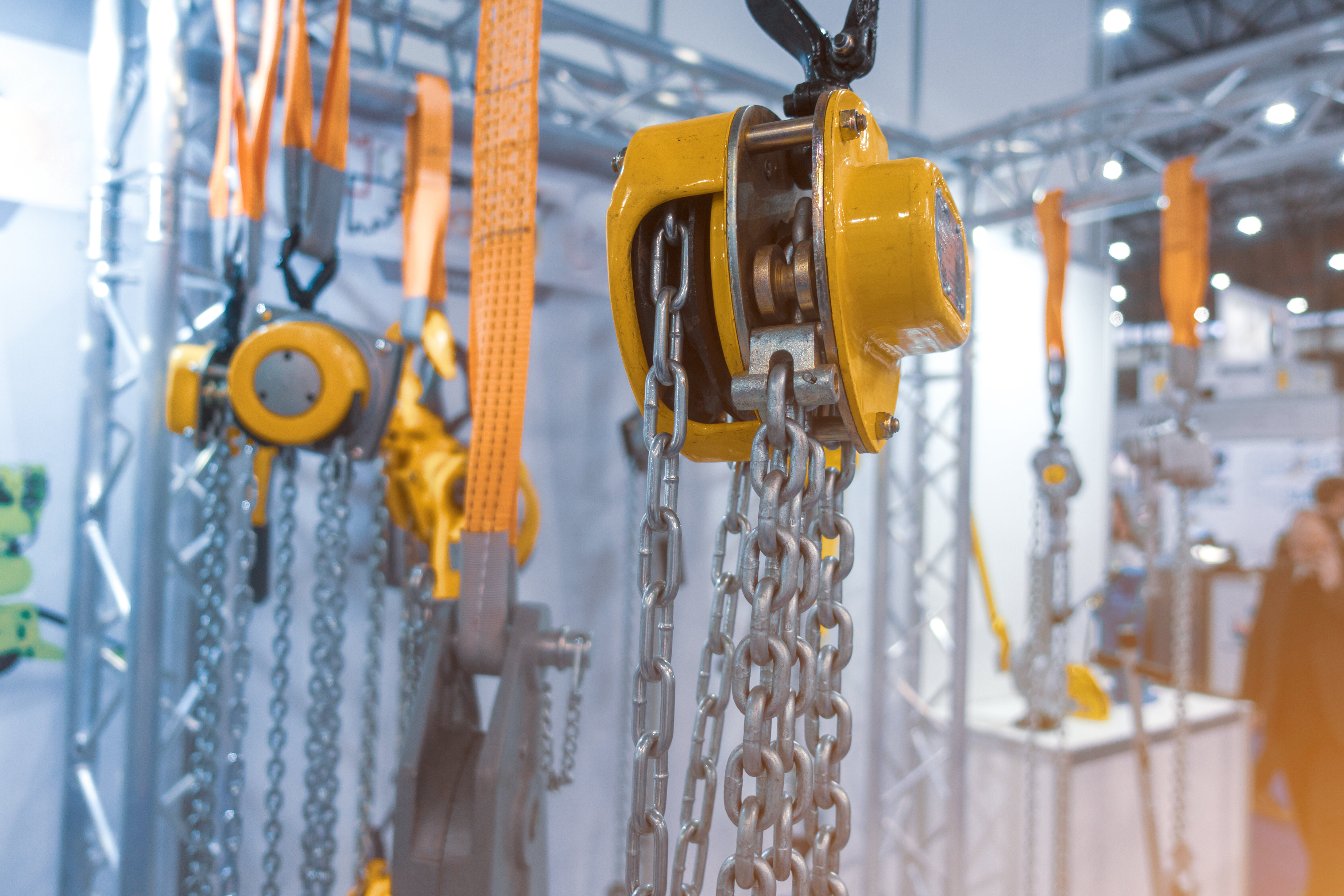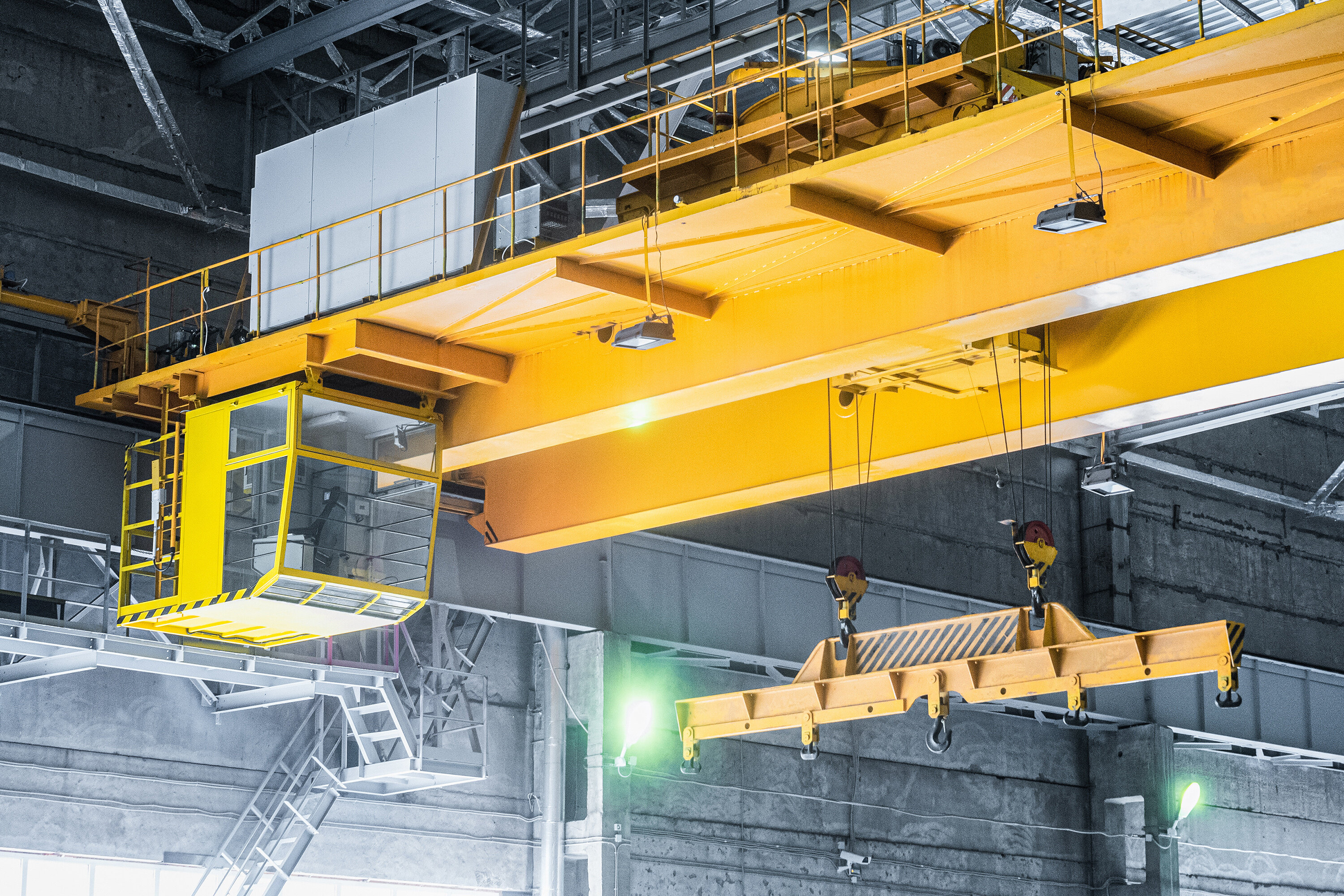Basic information on the use of load handling attachm
Lifting and transporting loads safely and efficiently is an essential part of many industrial and work processes. To avoid accidents and increase efficiency, it is crucial to use the right lifting equipment and handle it correctly.
On this page you will find basic tips and recommendations on the safe use of lifting equipment. Whether you work in the construction industry, logistics or any other sector, this information will help you avoid accidents and optimize your work processes.
Definitions

Lifting gear - Lifting gear is equipment for lifting and moving loads.
Examples:
- Manual chain hoists
- Lever hoists
- Lifting clamps
- Electric chain hoists
- Trolleys
- Cranes
Load handling attachment - A load handling attachment is a combination of lifting accessories, load handling attachments and slings.
Lifting accessories - A lifting accessory is a device permanently connected to the hoist for receiving lifting accessories, slings or loads. In addition to the rope and chain systems, lifting gear also includes crane hooks, grabs, lifting beams and tongs that are permanently connected to the hoist rope or chain.
Load lifting device - A load lifting device is a device which is not part of the hoist and which can be connected to the lifting gear of the hoist for picking up and releasing the load.
Examples:
- Lifting beams
- C-hook
- Loading forks
- Grabs
- Lifting magnets
- Vacuum lifters
- Lifting clamps

Question catalog
In the following overview, you will find 20 questions that must be answered without exception before lifting in order to ensure the safe use of load handling attachments. Our list of questions only shows the minimum requirements, which may need to be supplemented by the user.
Questions
- Is a qualified person taking responsibility?
- Are the communication arragements clear?
- Is the load lifting apparatus in good condition?
- Is the load lifting apparatus suited for the lifting task?
- Is all load lifting apparatus properly marked?
- Is the lifting capacity of all load lifting apparatus known?
- Is the lifting capacity of the load lifting apparatus adequate?
- Is the weight of the load known?
- Where is the load's centre of gravity?
- What are the slinging angles?
- Is loading symmetrical on the sling legs?
- Are slings protected against sharp edges?
- Is the load bearing hook positioned above the centre of gravity of the load?
- Is the selected type of slinging suitable for the load?
- Is load control assured?
- Are all persons out of the danger zone?
- Are there further risks / hazards?
- Is the load held firmly and safely?
- Any unusual influencing factors to be considered?
- Any special requirements?
Examples
- Crane driver, loading foreman, safety engineer
- Hand signals, radio communication
- Regular inspection, visual checks before use
- Webbing slings are damaged by sharp edges
- Lifting capacity tag, labels, stamps
- Lifting capacity shown on the sling
- Consider the slinging angle
- Shown on the load or in the accompanying documents
- Centre of gravity indicated in the drawing
- Slinging angles must be considered when selecting the sling
- Unequal slinging angles indicate unequal loading
- The edge radius must be greater than the sling diameter
- The load will swing if the crane hook is not above the centre of gravity
- Single leg slings are not suited for long, slender loads
- Load movement may be controlled with a tagline
- Do not move suspended loads over persons
- Staff crossing the transportation route
- Rigging or load may shift
- Additional wind loads, obstacles, power lines or similar
- Loads must be turned



